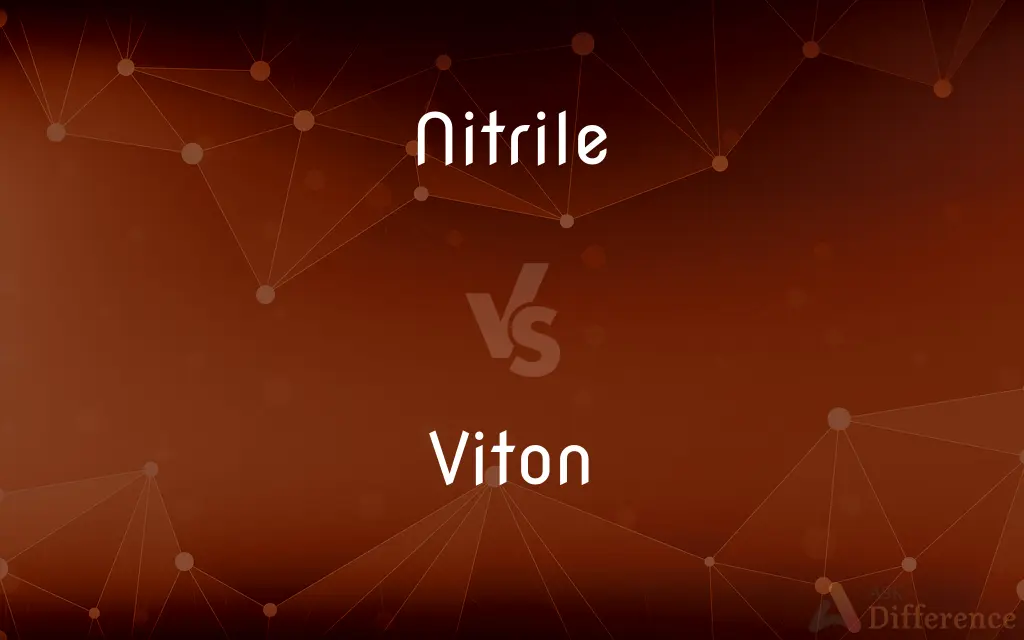Nitrile vs. Viton — What's the Difference?

Difference Between Nitrile and Viton
ADVERTISEMENT
Compare with Definitions
Nitrile
A nitrile is any organic compound that has a −C≡N functional group. The prefix cyano- is used interchangeably with the term nitrile in industrial literature.
Nitrile
An organic molecule containing a CN group, an organic derivative of hydrocyanic acid.
Nitrile
An oil-resistant copolymer of acrylonitrile and butadiene, used especially for disposable gloves, gaskets, seals, and tubing. Also called nitrile rubber.
Nitrile
(organic chemistry) any of a class of organic compounds containing a cyano functional group -C≡N; they are named as derivatives of the appropriate carboxylic acid.
Nitrile
A type of synthetic rubber formed by the copolymerisation of acrylonitrile and butadiene.
ADVERTISEMENT
Nitrile
Any one of a series of compounds bearing the cyanide radical (-CN); particularly, one of those cyanides of alcohol radicals which, by boiling with acids or alkalies, produce a carboxyl acid, with the elimination of the nitrogen as ammonia.
Nitrile
Any of a class of organic compounds containing the cyano radical -CN
Share Your Discovery

Previous Comparison
Coupable vs. Couplable
Next Comparison
Expense vs. Charge














































